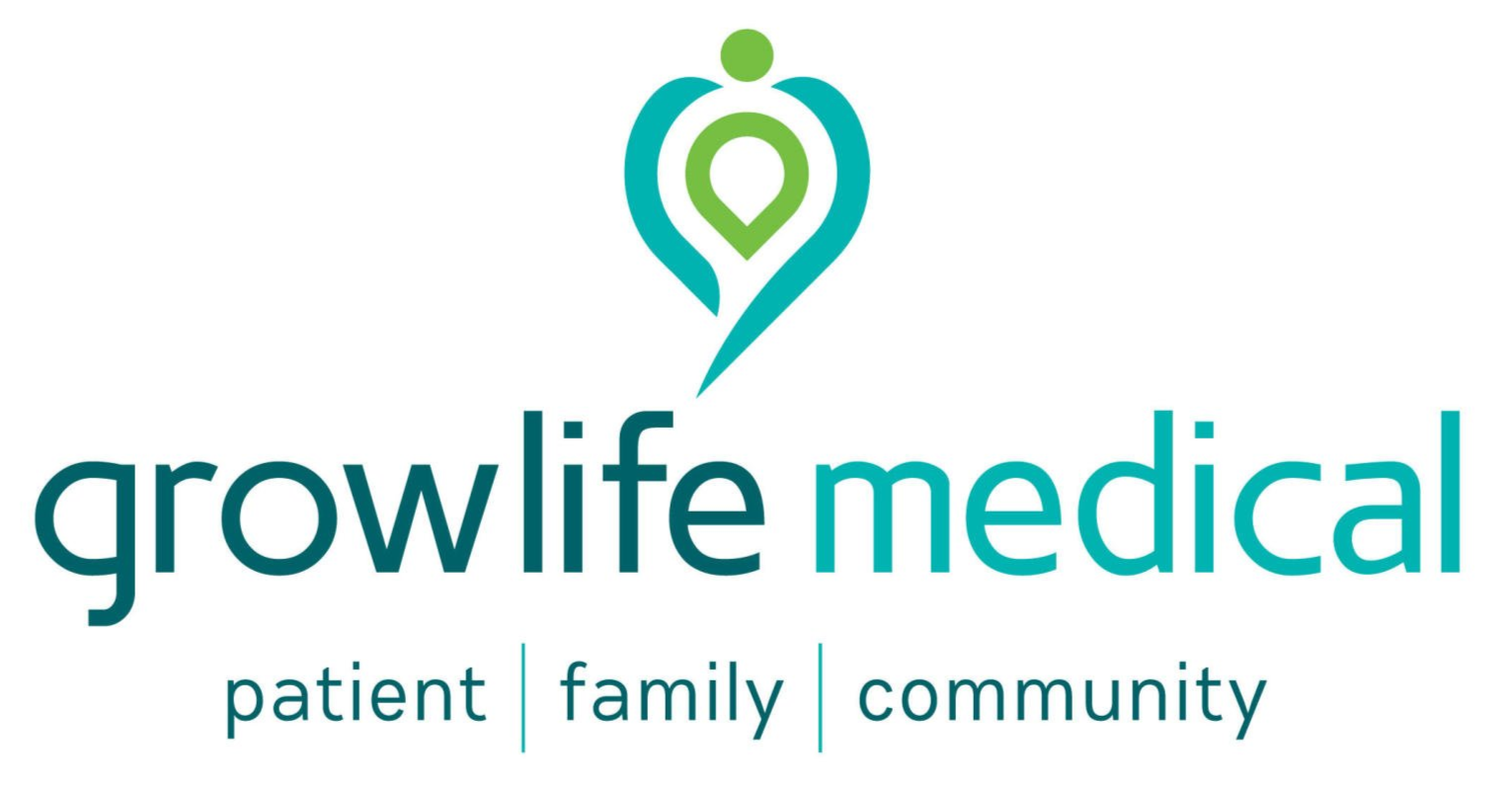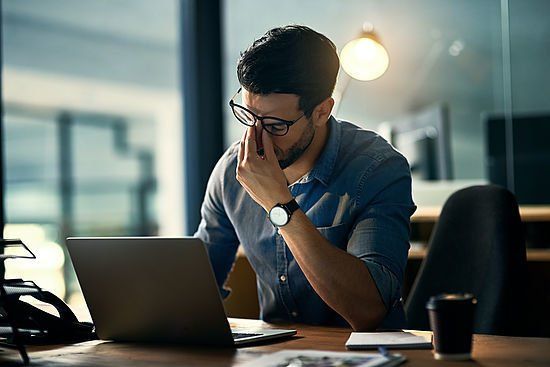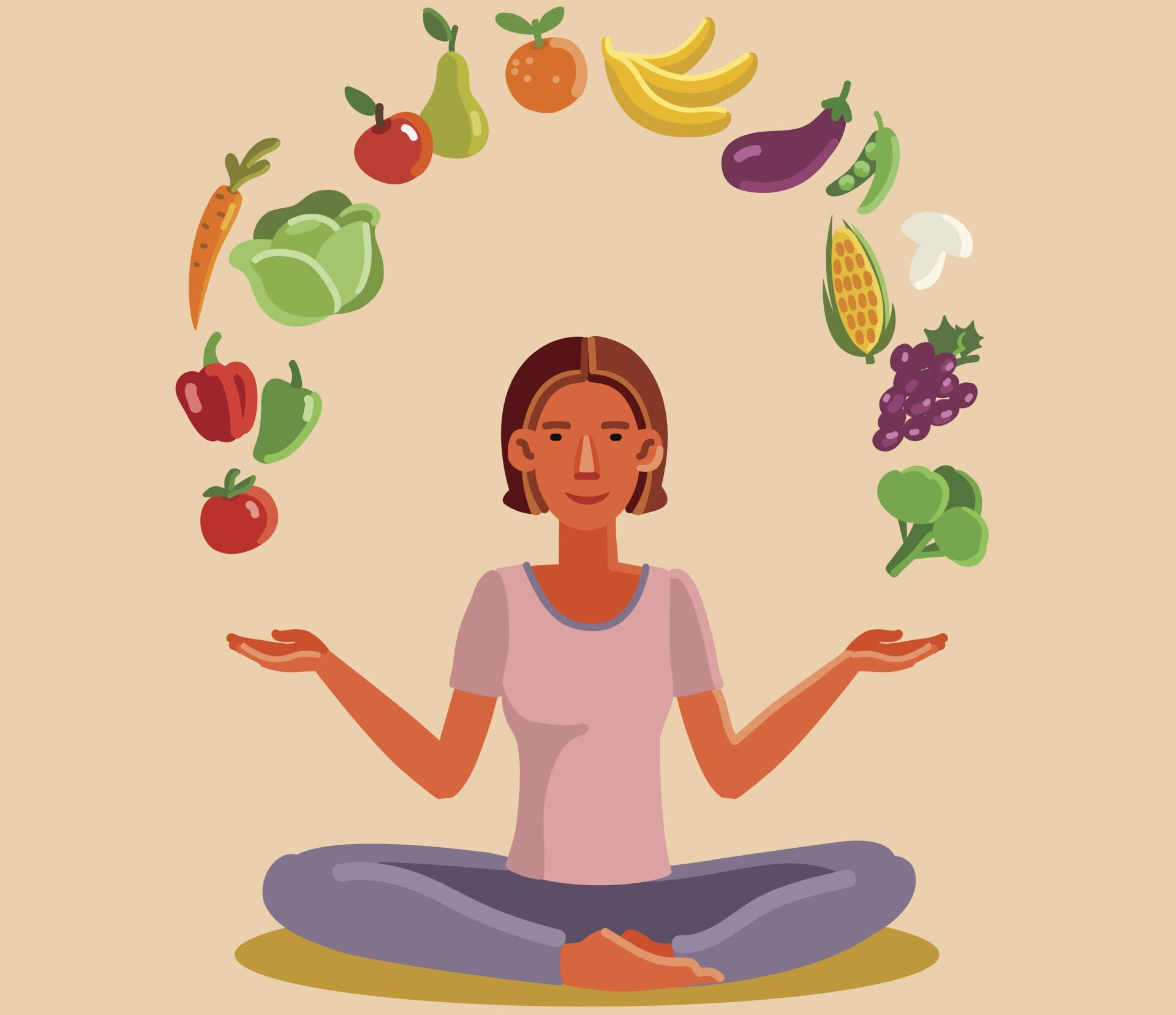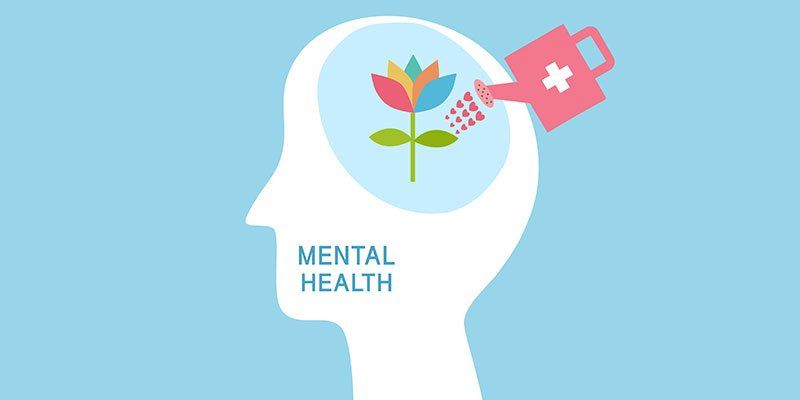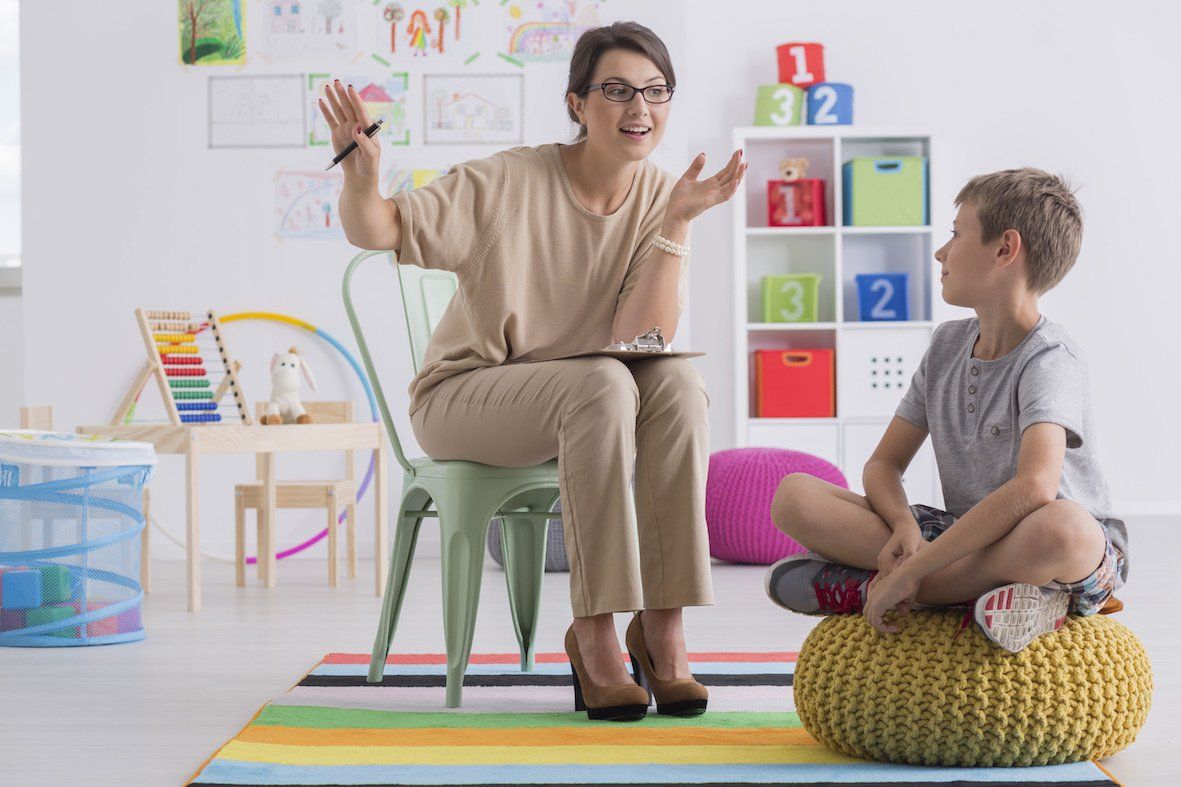Dealing With Work Stress and Anxiety
Welcome to the age of face-paced change, increasing work demands, job uncertainty and an increasingly disconnected society; a society rife with loneliness and fertile ground for anxiety.
At least 15% of the Australian population has an anxiety disorder , with a much larger number experiencing symptoms of anxiety without necessarily having a medical diagnosis. This means that in most families like yours, someone will experience anxiety sooner or later.
We've broken it down into the most common concepts we see, and that we think you need to know.
1. You are wired to feel anxious
Anxiety is normal. Everyone gets anxious. It can even be healthy - scientists speculate that anxiety in fish may protect them from dangerous situations like getting eaten - as their behaviour appears to be much more risk-taking (putting them at risk of being eaten) when they are exposed to anti-anxiety drugs as reported in Science. Your body courses with adrenaline, cortisol and other stress hormones as a normal part of life, surging to prompt action when you are threatened. The feeling of a racing heart, tight chest, falling stomach, flushed face and a need to run away or fight. This adrenaline rush is designed to help us deal with situations of danger via this “fight or flight” response.
A moderate amount of anxiety is useful. It provokes us to perform, by making us worried what might happen if we don’t prepare for a presentation or train for an upcoming event.
However, there is a limit to the benefit of anxiety. Our modern society means you now can’t run away from a problem like a caveman faced with a sabre toothed tiger. And you definitely can’t punch your boss, business partner or anyone else, no mater how high your adrenaline levels run.
Consequently, high levels of unresolved anxiety tend to result in decreased performance with complex tasks, as our minds play on loop about the issue we are worried about, and the unused adrenaline makes us feel restless and fidgety.
So it is important to acknowledge that anxiety is normal, it can be your friend, and that learning to manage it wisely is the best strategy for long term success.
2. Setting life’s priorities can set you free
As GPs, we talk to people from all walks of life. From children to the elderly, unemployed to CEOs and large business owners. A common theme across these groups is that anxiety represents an imbalance in life that means stress is not allowed to resolve.
The most common story is that of work demands piling up, resulting in a lack of attention to family life. We see that lack of attention affect both the primary carer and the main breadwinner.
The irony is that when prompted, most people list their life priorities in roughly the following order:
1. Family
2. Friends
3. Health
4. Everything Else
And yet our behaviour is often driven by work or money. Ask yourself: is your work more important than your family? Does the culture of your workplace improve the wellbeing of the things most important to you or detract from it?
An exercise as simple as sitting down alone, and then with your family, and listing your priorities, can help crystallise this idea.
Then be brave and start pursuing your main priorities.
3. Exercise is your biggest friend
We mentioned Adrenaline before. If you’re feeling anxious, it typically means that the source of your anxiety has not been dealt with. Cavemen used to relieve their anxiety by running away or fighting the source of their anxiety. As we said before, you can’t do this in our society, but you can deal with the hormonal consequences.
Any sort of exercise that feels intense to you can help. Just ensure it is hard enough to cause you to feel a bit out of breath, and to have trouble concentrating on anything other than the exercise you are doing.
This is a great way to burn off that excess adrenaline, and will have a myriad of health benefits along the way.
A good tip is to aim for a group activity. Data from the exercise-monitoring giant Strava shows that people exercise up to 50% more when they are with someone else. Social contact, anxiety reduction, and increased fitness all in one place. Much better than any counselling session or prescription tablet.
4. Alcohol may make you feel better in the short term, but worse in the long run
There isn’t anything quite as relaxing as a well-earned beer or wine on a Friday evening. Or is there?
Many people don’t realise that alcohol has a paradoxical effect to be initially relaxing, but to trigger rebound anxiety the next day. This creates a classic reinforcing effect of stress and anxiety during the day, relieved by a drink at the end of the day, only to leave you with more rebound anxiety the next.
Surprisingly, it only takes as little as one or two standard drinks to cause this rebound anxiety. And the effect can last for several days after. Because alcohol is so ubiquitous in our social lives and dining culture, it can be years since you have had an extended period of abstinence to notice this effect. And when stress levels at work or at home go up, alcohol consumption is frequently used as a coping strategy.
If this is the case for you, choosing to take a month completely off alcohol can reset the balance, and allow you to break the cycle. Call it Dry July, NO-vember or whatever you wish. Give it a go and you will likely notice yourself more productive, less stressed, and with more energy to do the things that are truly important to you.
5. Our society is overwhelmed by keeping up with the Joneses.
We all need to work to support ourselves, but some of the happiest people I know have honestly appraised their life and chosen to pursue family happiness over material wealth. I have seen people drop their income by half after making this decision, to report back years down the track that it was the best decision they have made.
This phenomenon impacts so many aspects of our lives. We need a flash car, our social media personas need to be closely curated, our kids can’t yell at one another, and the house must look perfect, even if we are bringing up 3 children under 5.
We believe that working for a purpose, and striving for constant improvement is a necessary part of being human; it is part of the reason we live in such a wonderful society. But feel free to given yourself a break now and then. Leave the dishes, spend more time chatting with the people you love at the dinner table, and don’t feel embarrassed about the mismatched clothes your children are wearing. Your friends will thank you for it. And will be more likely to remember the shared laughter than the brand of table cloth.
What next?
We want the the
Grow Medical community to be the healthiest in the country . That means we need
doctors ,
nurses ,
allied health ,
receptionists and patients to have positive mental health, a healthy family and be part of a thriving community. Please do your part to make this happen by sharing this widely with those you love, by clicking the share buttons below, as a way to start a conversation about what sort of society you want to build. All too often we don’t see fathers in the clinic, exactly because life is taking them in a direction they hadn’t intended. We believe this is the next frontier in growing the strength of your family. In fact, we believe so strongly in elevating the conversation around this topic, we have launched an
annual essay competition . 2019's topic is "Stories of Fatherhood ". Sitting down and writing an entry may help you focus your priorities, and even inspire someone else to sharpen theirs.
If you read this article and noticed warning signs in yourself, or someone you love, please ask them to see a doctor. Acting sooner rather than later is really important, as once you have crashed it is much harder to pick yourself back up again and move on with life. Your
doctors and
psychologists are experts in physical, mental and family health. Speaking to someone independent and trustworthy outside of your family can sometimes be the factor that starts you on the path to recovery. In the the mean time remember:
1. Acknowledge anxiety for what it is and
book now to see your GP.
2. Focus on your life priorities
3. Start exercising with friends, family or a group
4. Give alcohol a break
5. Don’t worry about the Joneses
See you soon. Remember to share via social media or email by clicking the buttons below. And thanks for reading.

More Articles on Mental Health
Connect
Clinicians: please forward clinical correspondence via Medical Objects Secure Messaging. Fax no longer accepted.
